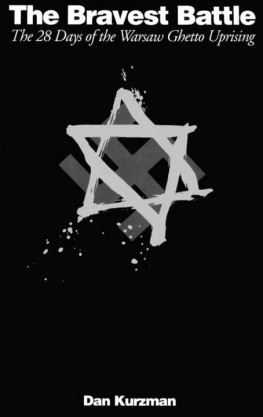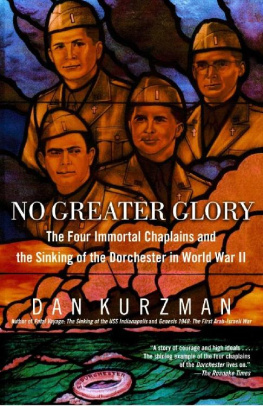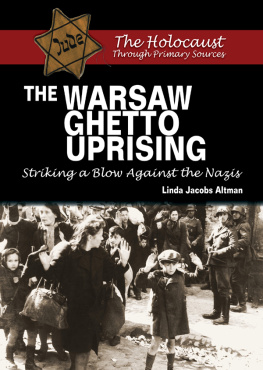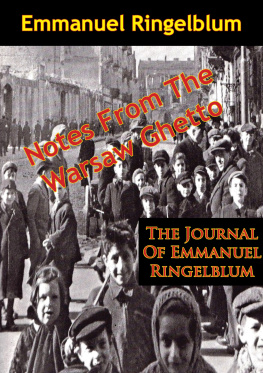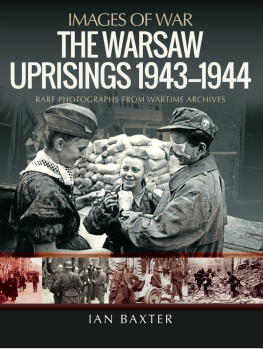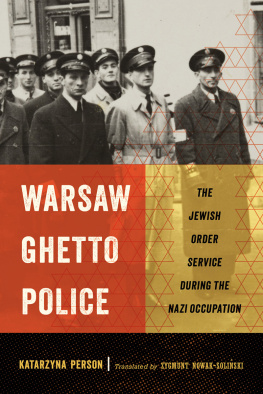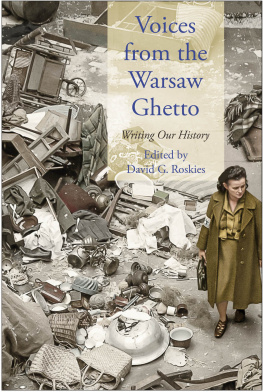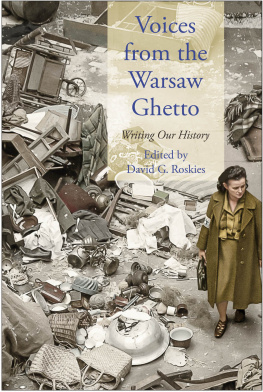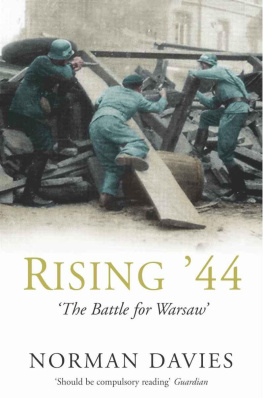Dan Kurzman - The Bravest Battle: The Twenty-eight Days of the Warsaw Ghetto Uprising
Here you can read online Dan Kurzman - The Bravest Battle: The Twenty-eight Days of the Warsaw Ghetto Uprising full text of the book (entire story) in english for free. Download pdf and epub, get meaning, cover and reviews about this ebook. year: 1993, publisher: Da Capo Press, genre: History. Description of the work, (preface) as well as reviews are available. Best literature library LitArk.com created for fans of good reading and offers a wide selection of genres:
Romance novel
Science fiction
Adventure
Detective
Science
History
Home and family
Prose
Art
Politics
Computer
Non-fiction
Religion
Business
Children
Humor
Choose a favorite category and find really read worthwhile books. Enjoy immersion in the world of imagination, feel the emotions of the characters or learn something new for yourself, make an fascinating discovery.
- Book:The Bravest Battle: The Twenty-eight Days of the Warsaw Ghetto Uprising
- Author:
- Publisher:Da Capo Press
- Genre:
- Year:1993
- Rating:5 / 5
- Favourites:Add to favourites
- Your mark:
The Bravest Battle: The Twenty-eight Days of the Warsaw Ghetto Uprising: summary, description and annotation
We offer to read an annotation, description, summary or preface (depends on what the author of the book "The Bravest Battle: The Twenty-eight Days of the Warsaw Ghetto Uprising" wrote himself). If you haven't found the necessary information about the book — write in the comments, we will try to find it.
In October 1940 Nazis forced all the Jews in the Polish city of Warsaw to live in the cramped squalor of a small ghetto. Despite the starvation and disease that claimed 50,000 lives per year, the Jews were not dying swiftly enough to suit Heinrich Himmler, who ordered in 1942 that the Warsaw Ghetto be dismantled and the 450,000 inhabitants be deported to the gas chambers at Treblinka.
On April 19, 1943, the first day of Passover, two thousand German troops, singing confidently, marched into the ghetto to round up the remnant of remaining Jews. Suddenly, a fifteen-year-old girl tossed a grenade in their midst. Within minutes the German army had been routed. The Warsaw Ghetto Uprising had begun.
This is the first full-scale, step-by-step account of the climatic twenty-eight-day struggle of the poorly armed Jews against their Nazi exterminators.The Bravest Battletook more than two years to write and involved interviewing more than 500 people, including most of the surviving fighters. This moving history cannot be matched for its authenticity and drama.The Bravest Battleis a testament to the Warsaw Jews, who fought for survival with dignity and courage.
This is perhaps Kurzmans best work. . . . He mixes moments of tenderness amid the terror as he draws individual portraits that endure.--Publishers Weekly
Dan Kurzman: author's other books
Who wrote The Bravest Battle: The Twenty-eight Days of the Warsaw Ghetto Uprising? Find out the surname, the name of the author of the book and a list of all author's works by series.

